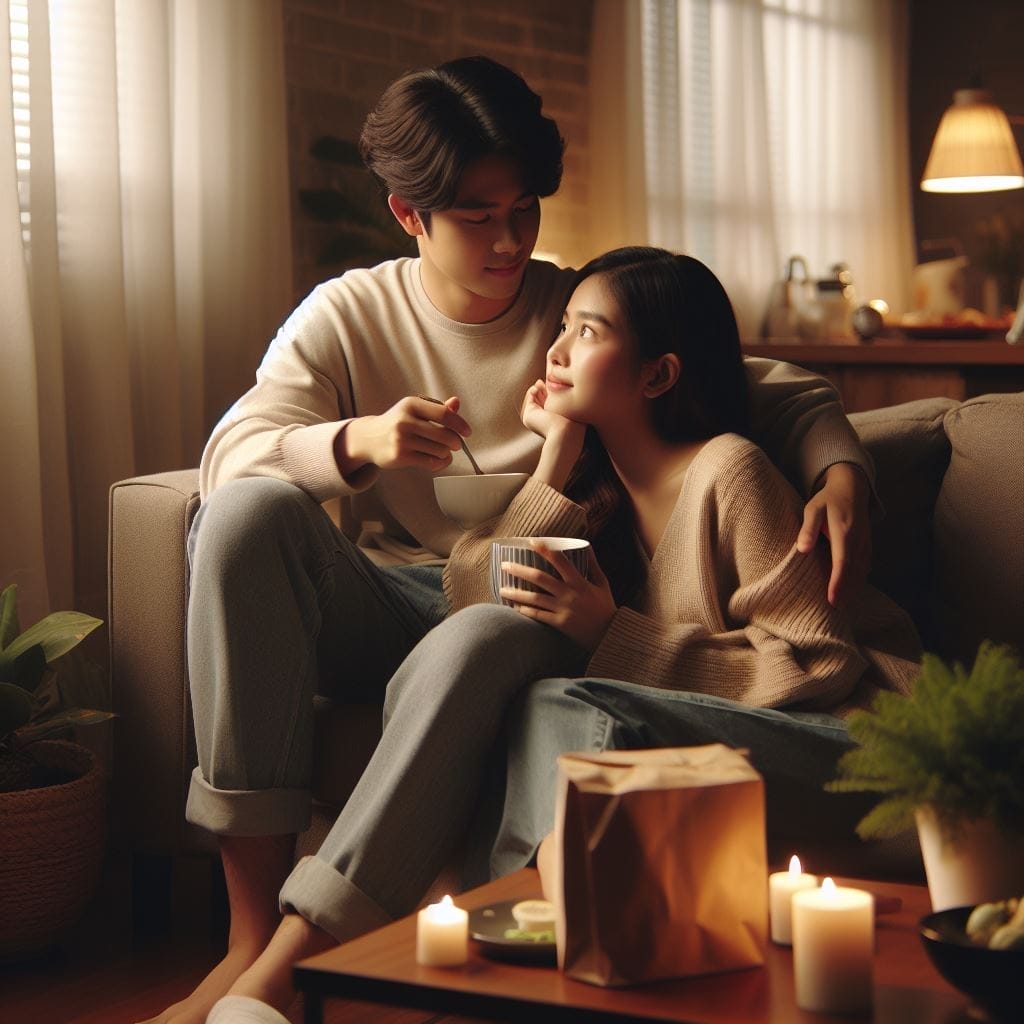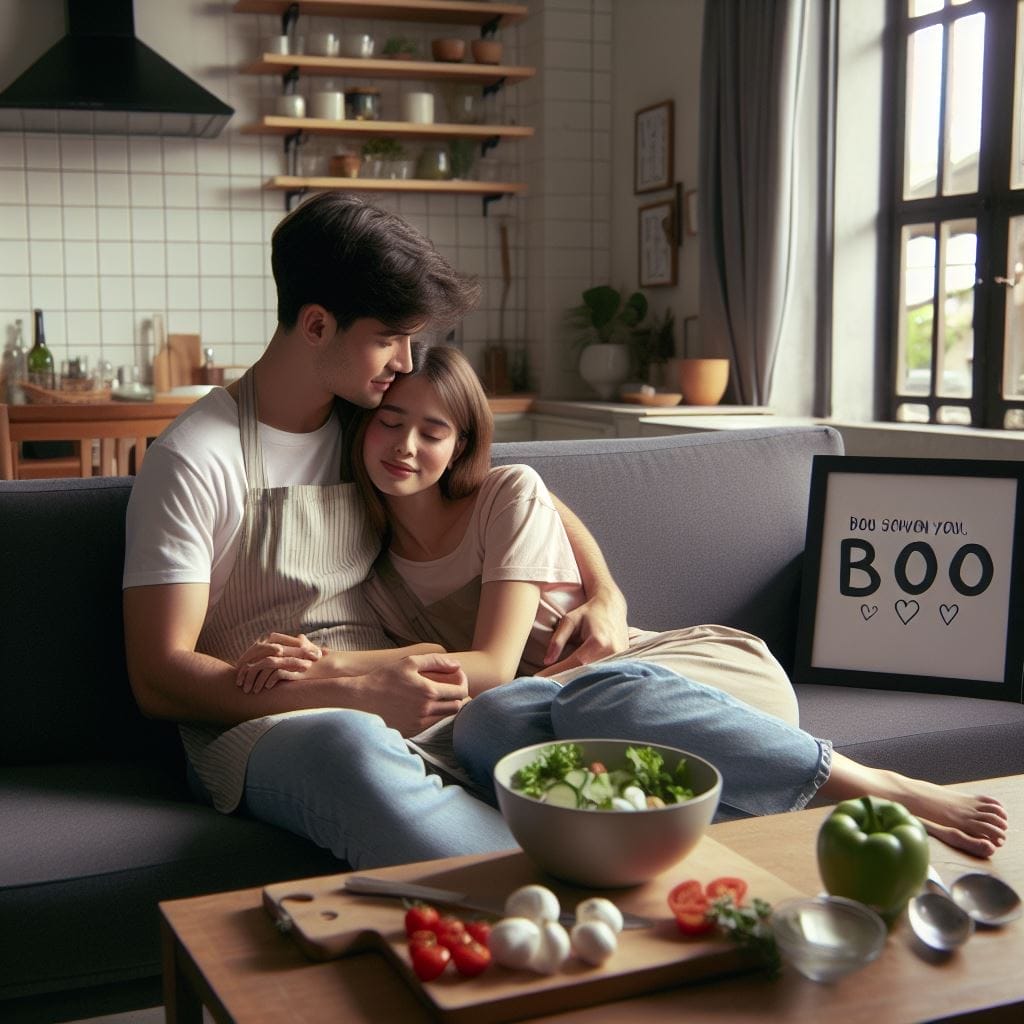Introduction
Ah, the world of relationships—a complicated dance of feelings, unstated gestures, and, of course, terms of endearment. Picture this: you’re chatting with a man, and instantly, he decides to call you “boo” or “bae.” Your thoughts race with questions: What does it mean when a guy calls you boo or bae? Is it only an informal term of endearment, or is there something more under the surface?
Let’s get to the bottom of the layers of meaning behind this reputedly simple puppy call and explore why understanding those nuances is essential for interpreting the tricky language of love. After all, whilst a man calls you “boo,” it’s now not pretty much the words; it’s a glimpse into the depths of his feelings and the dynamics of your connection.
So, fasten your seatbelt as we delve into the fascinating world of deciphering the term “boo” and the unstated messages it conveys inside the realm of relationships.
Key Takeaways
Congratulations! You’ve launched into an adventure into the exciting world of interpreting the term “boo” while uttered by a guy. As you traverse the intricacies of affectionate nicknames and terms of endearment, right here’s a roadmap of key takeaways you can expect after studying through our exploration:
- Multifaceted Meanings: Discover the diverse dimensions of “boo” in relationships, starting from a simple affectionate nickname to a profound signal of intimacy. Uncover the layers beyond the surface, understanding that not all “boos” are created equal.
- Context is King: Learn the art of interpretation by paying heed to the tone, body language, and frequency of usage. Context matters, and by analyzing the subtleties, you’ll be equipped to decipher the true intentions behind the endearing term.
- Navigating Misconceptions: Challenge common misconceptions about being called “boo.” It’s not always a direct route to romantic interest; sometimes, it’s a friendly gesture or a cultural expression. Avoid overanalyzing and creating unnecessary confusion in your relationship landscape.
- Scenarios Unveiled: Dive into the distinctions between the friendzone and romantic interest and the indicators of casual versus serious relationships. Understand the shades of meaning that “boo” can take on in different scenarios, giving you a nuanced perspective.
- Communication Triumphs: Embrace the importance of open and honest communication in relationships. If the mysteries of “boo” still linger, take the reins and have a direct conversation with the guy in question. Let him know you’re open to understanding and interpreting the term together.
By the end of this journey, you’ll be armed with insights and equipped to navigate the maze of “boo” in your relationship landscape. So buckle up and get ready to unravel the secrets behind the sweet whispers of affectionate nicknames. Happy decoding!

Interpretation of “Boo” Based on the Context
Affectionate Nickname
When a person calls you “boo,” it’s no longer just a casual reference; it’s an affectionate nickname. Picture it as a verbal hug, a term that transcends mere friendship. Your boyfriend may use this endearing label to convey a deeper emotional connection and express fondness.
Term of Endearment
In the realm of relationships, “boo” stands as a powerful term of endearment. It goes beyond the conventional expressions of love and signifies an intimate bond. If your significant other has conversations with this term, rest assured, you hold a special place in their heart.
Indications of Closeness and Intimacy
Being referred to as “boo” is a symbol of closeness and affection that goes beyond words. It reflects a level of comfort and connection that goes beyond surface-level interactions. When a guy calls you “boo,” he’s letting you into his inner circle, creating a shared language that strengthens the emotional ties between you.
Comprehensive Table: Reasons Why a Guy Might Call Me Boo
| No. | Possible Reasons |
|---|---|
| 1. | Affection and Connection: Calling you “boo” may indicate a sense of closeness and affection, suggesting a sturdy emotional connection. |
| 2. | Friendly Nickname: Sometimes, it’s used as a pleasant and comfortable nickname, suggesting a comfortable and clean-going relationship. |
| 3. | Romantic Interest: It ought to represent romantic interest, implying that he sees you as more than only a pal. |
| 4. | Testing the Waters: In certain situations, calling you “boo” might indicate the guy is gauging your feelings or testing the waters. |
| 5. | Expression of Comfort: Using “boo” as a term of endearment may express comfort and ease in the relationship. |
| 6. | Girlfriend Indicator: Some see it as a sign of envisioning you as a girlfriend, reserved for someone special. |
Identifying the Intention Behind when a guy called me Boo
A. Paying Attention to the Tone and Manner of Usage
When a guy affectionately calls you “boo,” the key lies in his tone and manner. Is it playful, honest, or perhaps a combination of each? Understanding the subtleties of his transport can provide precious insights into the character of the connection.
B. Analyzing Relationship Dynamics and History
The dynamics among people play an important role in interpreting the means of “boo.” Whether you’re pals, in the early stages of courting, or a devoted courting, the context topics. Consider your history, the stage of your relationship, and the emotional tone set by both parties.
C. Considering Cultural and Regional Influences
Culture and region can significantly influence the interpretation of terms of endearment. What “boo” means in one cultural context may differ in another. It’s essential to be culturally aware and understand how regional influences shape the understanding of such expressions.
Factors to Consider When Interpreting What Boo Means
I. Frequency of Usage: Is it a Casual Term or Something More?
When assessing the significance of being called “boo,” pay close attention to the frequency. Is it a casual term tossed around casually, or does it carry a weight of affection?For a man the usage of “boo” often is probably expressing a deeper connection, even as sporadic use ought to suggest a greater casual camaraderie.
II. Nonverbal Cues and Body Language: Actions Speak Louder Than Words
The subtleties of body language can communicate volumes. Does he accompany the term “boo” with gestures like lingering touches or prolonged eye contact? Non-verbal cues often provide insights into the genuine emotions behind the endearing label.
III. Consistency in Behavior and Communication Style: Does the Term Align with His Actions?
Consistency is key to decoding romantic cues. If a guy consistently uses “boo” alongside actions that demonstrate care and affection, it’s likely a term of endearment. On the contrary, if the term feels disconnected from his overall behavior, it might be a more casual expression.

Common Misconceptions about Being Called “Boo”
A. The Romance Trap: Assuming it Always Signifies Romantic Interest
In the complicated dance of human interaction, interpreting the meaning at the back of phrases of endearment can be a complicated mission. When a guy affectionately calls you “boo,” the knee-jerk response is probably to anticipate romantic interest.
B. The Overanalysis Dilemma: Creating Unnecessary Confusion
“Don’t be afraid to take the plunge, but don’t get too excited either!” Overanalyzing the term can lead to unnecessary confusion. Understanding the multifaceted nature of “boo” requires considering the context, tone, and dynamics of your relationship.
Possible meanings of “boo” in different scenarios
II. Friendzone vs. Romantic Interest
Friendship or flirtation? When a guy affectionately calls you “boo,” it might signal camaraderie rather than romantic interest. The key lies in the context—observe the dynamics of your relationship and the frequency of the term’s usage.
B. Casual vs. Serious Relationship Indicators
In the realm of relationships, “boo” serves as a versatile indicator. In casual connections, it can be a playful term, while in serious relationships, it morphs into a heartfelt expression of endearment. Pay attention to the tone and frequency to decipher the underlying message.
C. Table of All Possible meanings of “boo” in different scenarios
| Scenario | Meaning | Additional Context |
|---|---|---|
| 1. Affectionate Term | Used as a term of endearment to show affection. | This often indicates a close and connected relationship. It may be a friendly nickname or a sign of romantic interest. |
| 2. Testing the Waters | Indicates uncertainty or checking your reaction. | In some cases, it may suggest the person is gauging how you feel about them. |
| 3. Expressing Attraction | Sign of liking or romantic interest. | Calling someone “boo” might convey that the person is attracted to you. |
| 4. Girlfriend Term | Implies a deeper commitment, seeing you as a girlfriend. | Some use “boo” as an expression reserved for their significant other. |
| 5. Friendly Nickname | Indicates comfort and ease in the relationship. | When used casually, it may signify a friendly and relaxed connection. |
Communication is Key
A. Importance of Open and Honest Communication in Relationships
In romance, communication serves as the lifeblood that sustains healthy connections. To certainly recognize the importance of being known as “boo,” it’s crucial to comprehend the significance of open and honest communique in relationships.
Establishing a sturdy foundation primarily based on transparent communication lays the groundwork for a thriving connection. When companions specify themselves freely, it fosters a feeling of trust and emotional intimacy. This, in flip, sets the level for unraveling the mysteries of endearing phrases like “boo.
B. Clarifying the Meaning of “Boo” Directly with the Guy
In the tapestry of modern-day slang, phrases like “boo” have advanced, taking over various meanings depending on the context. If a guy has affectionately stated you as “boo,” it’s critical to interact in a direct verbal exchange to unveil the goal in the back of the term.
1. Paying Attention to Context Clues
Understanding the context in which the term is used can provide treasured insights. Is he the use of it as a playful period of endearment, or does it carry deeper importance? Contextual clues, which include frame language and tone, may be revealing.
2. Decoding the French Origin
The term “boo” traces its roots back to the French word “beau,” meaning sweetie. In a romantic context, it can be akin to endearing pet names like “babe.” This insight can help decipher whether the usage is lighthearted or holds a more profound meaning.
3. Varying Meanings in Different Relationships
The meaning of being called “boo” can vary relying on the nature of the relationship. For some, it is probably a playful period of love, even as for others, it can signify a deeper emotional connection. Paying attention to these nuances is critical to unraveling the mystery.
4. Communication as a Way to Clarify
When in doubt, there’s no substitute for direct communication. Engaging in an open and honest conversation with the guy who called you “boo” can provide clarity and dispel any uncertainty. Ask about his intentions and share your feelings to ensure both partners are on the same page.

A Personal Expedition into Affectionate Nicknames
I got caught up in human relationships, especially the nickname “boo.” This story is about genuine connections, where words paint the picture.
Picture a breezy evening, the sun casting its golden hues across the cityscape. In this story, I was chatting with a friend and didn’t notice things were changing. Out of nowhere, he casually dropped the term “boo” into our banter. The air hung with a delicate curiosity—what did it mean when a friend playfully called you “boo”?
I started to decipher the hidden meaning behind this harmless term as we talked. Did it show deep affection, or was it just a brief expression of friendship? The layers of meaning unfolded gradually, much like the petals of a blooming flower.
Throughout our friendship, I examined how much we interact and the emotions behind it. We realized that “boo” was more than slang—it showed the deep warmth in our connection. It was a term of endearment that went beyond normal friendships.
I learned that having context and understanding language is important in relationships. The term “boo” became a symbol, a shared language that added a unique flavor to our interactions. It showed how friendships can have affection without romantic feelings and still be beautiful.
So, dear reader, as you delve into the mysteries of “boo” in your own life, remember that each connection has its own lexicon. Embrace the journey and understand the subtle details that make your relationships special. Let terms of endearment connect you. After all, it’s in these subtleties that the true essence of human connection unfolds.
FAQs: What does it imply when a man calls you boo?
1. When a man you thought was your buddy begins calling you ‘boo,’ what feelings may come up? Does this word mean something different when used by a guy as a friend?
When a guy called me ‘boo,’ my female friends were quick to decipher that it wasn’t just a casual term but rather a potential shift into romantic territory. In a romantic relationship, the term ‘boo’ can mean more than just a friend calling you affectionately—it could be a sign of deeper feelings and a way to show affection beyond friendship boundaries.
2. Can you explain why a guy calls you “boo” and what it means when someone close uses it?
Exploring the reasons why a guy may call you ‘boo,’ specifically while your boyfriend calls you ‘boo,’ reveals the layers of meaning in a relationship. It’s not simply a period of endearment for someone you like; it signifies a connection beyond friendship, introducing a brand-new level of intimacy and affection.
3. Is there a difference between a guy calling you ‘boo’ as a pal or romantically? How do you navigate this when you like being called ‘boo’ by a friend?
If a man calls you ‘boo’ but doesn’t always suggest it in a romantic context, it is probably a way to expose affection, just like the usage of phrases like ‘babe’ or ‘sweetie.’ Understanding whether a man might call you ‘boo’ again relies upon the dynamics of your friendship, and it may be a lighthearted way to flirt without necessarily indicating romantic interest.
4. Can you explain the different meanings of ‘boo’ when a guy calls you? Can you discuss how the relationship might change if we go from just being friends to something more? I’m curious about the hidden messages in this term.
While ‘boo’ is regularly used as a term for endearment in romantic relationships, it could also be a way for pals to playfully display affection. The beginning of ‘boo’ from the French word ‘beau’ adds a touch of sweetness, making it a versatile period that varies depending on the context wherein it is used.
5. When someone calls you “boo” in relationships, different reactions and emotions may arise. This phrase can have a loving meaning, but friends or acquaintances use it casually. How does it differ in these contexts?
In courting, the meaning of ‘boo’ can vary depending on someone’s special options. If a man started calling you ‘boo’ whilst you began dating, being attentive to his frame language and tone lets you recognize the depth of his affection. Using the period ‘boo’ at the end of a date may not always mean commitment, but it’s a way to flirt gently and display interest.
6. Is it every day for a man to call you “boo” in case you’re not dating?
Of course! Regarding if it’s ordinary for a man to refer to you as “boo” if you’re no longer in a dating, it happens often. It’s commonplace for guys to name human beings “boo” or different affectionate phrases even when they’re no longer formally courting. They can be the usage of this as a simple method to flirt or a specific hobby in mastering you better. Therefore, even if you aren’t in a love court, it’s far every day for a male to call you “boo” in social conditions.
7. How do “boo” and “bae” vary from one another?
When discussing the differences between a number of the phrases “boo” and “bae,” it’s a long way critical to apprehend that each phrase is an expression of endearment normally used to consult individuals with whom you percentage a romantic or close to dating. While “boo” is a period that has an extra well-known usage, often extending beyond romantic contexts to refer to shut friends or family individuals, “bae” tends to carry a greater different connotation.
Typically, “bae” is employed to indicate someone’s considerable other or associate, suggesting a deeper level of romantic involvement or commitment. In summary, whereas “boo” is a flexible term of endearment used extra widely, “bae” is greater in particular associated with intimate relationships and an experience of exclusivity.
8. Does “boo” mean you’re in a relationship with him?
It is not always a given that using the phrase “boo” means you are in a love relationship. “Boo” can be used to convey intimacy and fondness among pals or pals, whilst it’s also used as a word of endearment among love partners. The connection between the parties involved and the context wherein the word is used will decide how it’s meant to be interpreted.
9. Does a guy calling you “boo” always indicate that he likes you?
There’s no guarantee that a man calling you “boo” method he’s in love. For several reasons, including flirting playful teasing, or even just because you two are excellent friends, a male could use this phrase. You should take into account additional cues and the context of his usage of the phrase to correctly decipher his intentions. Seek for other indications from his actions to have a deeper comprehension of his meaning when he refers to you as “boo.
10. Can “boo” be used between friends, or is it strictly a romantic term?
Certainly! The term “boo” is often linked with romantic relationships, but its usage can also extend to close friendships as a form of affectionate banter. The crucial factor to consider is the context in which it is used and the dynamics of the relationship you share with the individual employing it. By information these factors, you could decide whether “boo” is being utilized in a pleasant or romantic context.
11. How can you discern if he’s only being friendly or flirting?
It is important to consider the French origin of the term “boo,” which is “beau,” which means “sweetie,” while understanding it. Understanding this linguistic connection can shed light on the nuances of its usage, akin to endearing pet names like ‘babe.’ This insight can aid in unraveling the mystery behind whether being called ‘boo’ is in a lighthearted context or carries a deeper emotional significance.
Furthermore, ‘boo’ might mean different things depending on the kind of connection. It could be interpreted as a lighthearted show of affection by some, or as a deep emotional bond by others. Understanding these fine nuances is essential to understanding the real meaning behind the phrase.
In situations when there is ambiguity in the definition of “boo,” it is still crucial to communicate directly. Speaking with the person who called you “boo” honestly and openly can provide clarification and allay any concerns. Both aspects may additionally make certain they may be on the same web page and prevent misunderstandings by being open and honest about their objectives and sentiments.
12. How can you tell whether a guy is being sincere when he calls you “boo”?
When a guy affectionately calls you ‘boo,’ the key lies in his tone and manner. Is it playful, honest, or perhaps a combination of each? Understanding the subtleties of his transport can provide precious insights into the character of the connection. The dynamics among people play an important role in interpreting the means of ‘boo.’ Whether you’re pals, in the early stages of courting, or a devoted courting, the context topics.
Consider your history, the stage of your relationship, and the emotional tone set by both parties. Culture and region can significantly influence the interpretation of terms of endearment. What ‘boo’ means in one cultural context may differ in another. It’s essential to be culturally aware and understand how regional influences shape the understanding of such expressions.
To benefit a deeper understanding of what a guy honestly way when he calls you ‘boo,’ it’s crucial to pay attention to various aspects of his communication. Start by way of listening carefully to his tone of voice – is it playful and flirty, or does it convey a tone of sincerity and affection? This can offer valuable insights into his intentions and emotions towards you. Additionally, examine his behavior past simply the term ‘boo.’ Notice if he treats you with kindness, recognition, and heat, as this will imply authentic interest in his component.
Lastly, don’t hesitate to initiate an open conversation with him. An informal inquiry like, ‘Hey, you referred to as I boo the alternative day – what’s up with that?’ can provide direct readability on his thoughts and help you understand the that means in the back of his choice of words. By combining these observations and approaches, you can navigate the nuances of his affection and communication more effectively.
Conclusion: What does it mean when a guy calls you boo?
In the labyrinth of human relationships, the period “boo” emerges as a charming linguistic cipher, weaving a tale of love and connection. As we draw the curtains on our exploration, permits encapsulate the essence of this adventure in succinct bullet points:
- Embrace the Multifaceted Nature: Recognize that “boo” is a chameleon within the panorama of endearing terms, wearing various meanings depending on the context and dynamics.
- Context is Your Compass: Navigate the terrain of relationships with an awareness of context. The tone, frequency, and body language become your guiding stars in decoding the true intention behind the sweet whispers of affection.
- Beware of Misconceptions: Dispel the myths surrounding “boo.” It’s not a one-length-suits-all expression of romantic interest; sometimes, it’s a manifestation of friendship or cultural nuances. Avoid unnecessary overanalysis and confusion.
- Different Strokes for Different Folks: Understand that the meaning of “boo” is as diverse as the relationships it encapsulates. From the friendzone to romantic interest, each scenario paints a unique picture.
- Communication is the Key: If ambiguity persists, seize the reins of communication. Engage in open and honest conversations with the person who bestowed the term upon you. Let them know you’re keen on understanding the layers of meaning.
As we bid adieu to our expedition into the realms of “boo,” remember that language, in all its nuances, is a powerful tool in the art of connection. So, go forth into your relationships, armed with insights and an appreciation for the intricate dance of words.
🚀 Call to Action: Ready to decode more mysteries of relationships? Explore the uncharted territories of affectionate terms and discover the language of your unique connection. Share your own “boo” stories in the comments below, and let’s continue this journey together! 🌟
Related Articles:
- Unveiling Love: What Does It Mean When a Guy Kisses Your Hand While Holding?
- How Do You Respond When Someone Says “Living the Dream”?
- What Does It Mean When a Guy Touch Your Waist From Behind? Find Out Now!
- How Do You Say I Am Lucky to Have a Friend Like You?
- What to Say When Someone Pushes Religion on You
- What Does A Guy Think When You Touch His Arm
- Decoding the Puzzle: My Ex Sent Me a Friend Request Then Deleted It
- Decoding Signals: What Does it Mean When a Guy Kisses You on the Forehead?
- What Does it Mean When a Guy Calls You Beautiful Babe?
- What Does It Mean When a Guy Texts You First? Uncover Truth
- Decoding Messages: What Does it Mean When a Guy Says Sweet Dreams?
- Decoding Signals: What Does it Mean When a Guy Looks at You and Smiles?
Source: Psychology Today

Sarah Andrews’ work on relationships is informed by a breadth of experience and a strong interest in human nature. Sarah, who holds a Psychology degree and has a good eye for nuances, delves into the complexity of communication and emotion, delivering insightful insights for readers seeking personal growth and emotional pleasure. Sarah hopes that her empathic approach and insightful suggestions will motivate readers to understand themselves and their relationships better.
